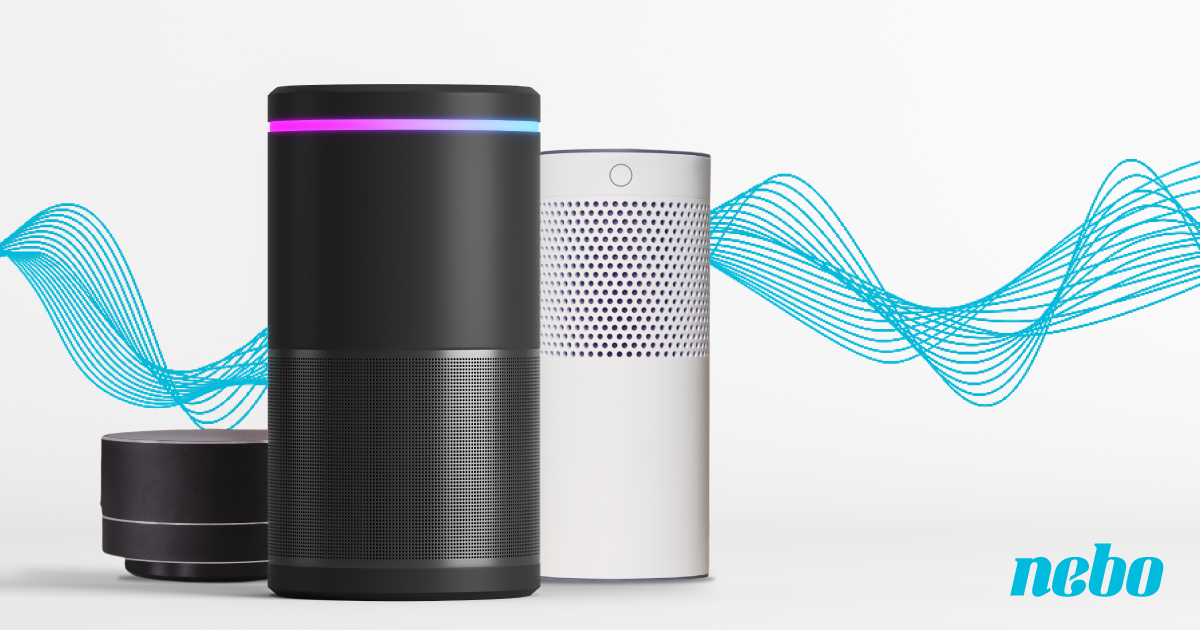The Cloudy Future of Voice Analytics

Alexa...where does my Voice Search data go?
With the popularity of voice and voice-enabled devices, how challenging does it become for marketers to track Voice Search? Both brands and consumers are leveraging voice-enabled devices for engagement and search (I, myself, own 3 Alexa devices), and marketers need to stay on top of this rising technology.
When we conduct a Voice Search, where does that data go? It likely becomes trapped in an Amazon/Google/Apple data cloud only accessible by their respective web engineers. Google definitely doesn't make it easy. We could possibly go into the Google Search Console and sift through longer tail keywords, but there is no “Google Analytics” for Voice Queries. Apple’s Siri is even more of a black box. As Search Engine Journal puts it, “Voice Search is really just a keyword, fired through a different medium.”
In a results-based business, that doesn’t do marketing professionals like me much good. Marketing publications offer some insight. MediaPost references some staggering stats around increased smart speaker usage. According to the data, 51% of users remember hearing ads on their smart speakers (an increase of 25% from 2019). But the following questions still remain:
- How do we know if Voice Search is driving traffic to a site?
- How can we measure if Voice Search is converting to traffic and leading to a return-on-investment (ROI)?
- Is Voice Search playing a role in customer retention?
Yes, I am probably expressing a bit of frustration in the presence of oversimplification, and although there is promise with the future of Voice Search Analytics, there are obviously some challenges preventing the envelope from being pushed. According to Martech Advisor, there are various factors playing into a delayed rollout of voice analytics. Here are two of them:
- Steep learning curve
- With any data-intensive platform, there are numerous nuances to take into account as both a user and engineer. In a lot of cases, this can be seen as a large barrier to entry.
- Lack of urgency from Marketers About Voice Search
- Voice search has been considered a “fad” by about a third of marketers. It is deemed as something that does quite yet have the staying power to justify the development of brand-spanking-new platforms or tools.
Additionally, Marketing Land speaks to a very valid challenge that a potential Voice Analytics tool faces: voice data has limited value on its own. One of the biggest challenges that marketers face in general is tying all consumer touchpoints together to form a nice and clean customer journey or conversion funnel (this challenge is still very alive and kickin’). When you throw voice into the mix, you're adding a new touchpoint to the journey, but also, an additional touchpoint that needs context or supporting data. Marketers need visibility into how said Voice Search query impacted a consumer’s behavior beyond the actual search. For instance, did the consumer proceed to the website in question? What actions did the user execute on the site? Did the user convert? What is the return (on any sort of marketing spend) of a user’s given action?
These sorts of questions cannot be answered in a vacuum and this is a huge limitation with regard to a devoted Voice Analytics tool - it needs to seamlessly integrate or communicate with the flagship Site Analytics or Advertising Platforms (e.g Google Analytics or Adobe Analytics) to truly understand how voice impacts behavior across the web.
Since it appears we’ll have to wait before we see substantive changes in Voice Analytics, we could stop for a moment and imagine a better scenario. This scenario uses the uniqueness of voice interactions to build better analytics outcomes and possibilities for exploration.
For example, what if Voice Analytics included tone of voice metrics within it? We would be able to see what people are searching and interacting with during voice experiences, and also how they are searching and interacting with those experiences. What does their vocal inflection tell us about what they are trying to achieve in a particular interaction? If they are annoyed or angry, what could that tell us about their mental and emotional state in the context of the search or interaction? We could potentially have a new look at some of the psychographic information we often have to infer in consumer personas.
Another interesting possibility is to provide more depth into individual voice interactions. As a parallel, take any digital ad and one immediate KPI and you’ll think of is click-through rate. What percent of people who see our ad online are clicking on it and (hopefully) taking the action we want them to take? Now take the Spotify or Apple Music podcast. Podcasters and producers want to know how many people listen through or complete their podcast episode or the listen-through rate.
What if we could have that same idea built into a broader Voice Analytics capability? How are people using a voice search to make an initial action that factors into KPIs? A listen-through rate KPI that shows how long people listen to an answer to their voice query may also be useful for SEO practices in dealing with platform knowledge graphs. For example, if people are cutting off an answer and not listening through after 5 seconds, the answer may be too long or unrelated to their query. SEO practitioners could then work to make answers more succinct or increase the chances their better answer is chosen.
In conclusion, I would say Voice Analytics is a lock for a cloudy future. The pieces are certainly there, but the challenges and barriers that a dedicated Voice Analytics platform - or Voice Analytics as an add-on to the larger platforms - appear to outweigh the benefits for now. Yet, with Voice Search on the rise, it’s no secret that it will continue to make its way into the consumer journey. *COUGH* I hope you’re paying attention, Amazon and Google. *COUGH*

Comments
Add A Comment